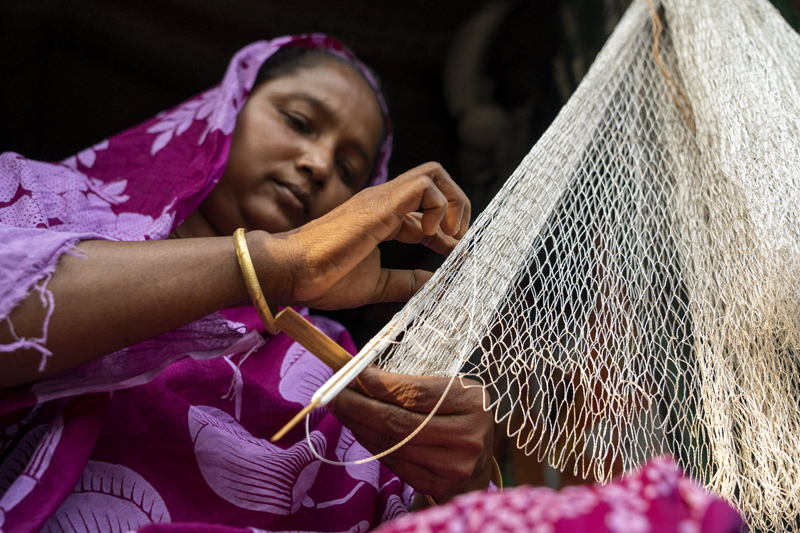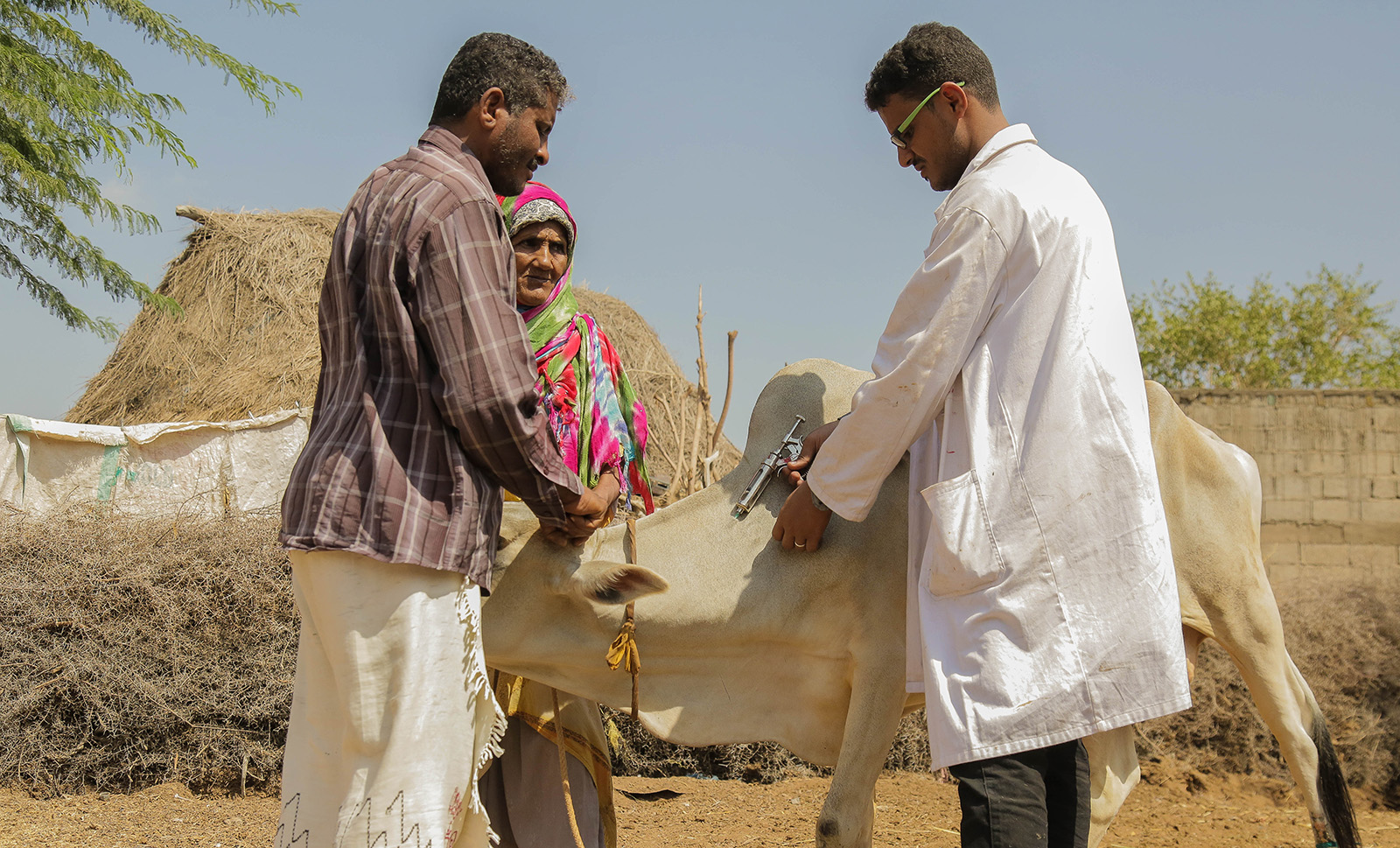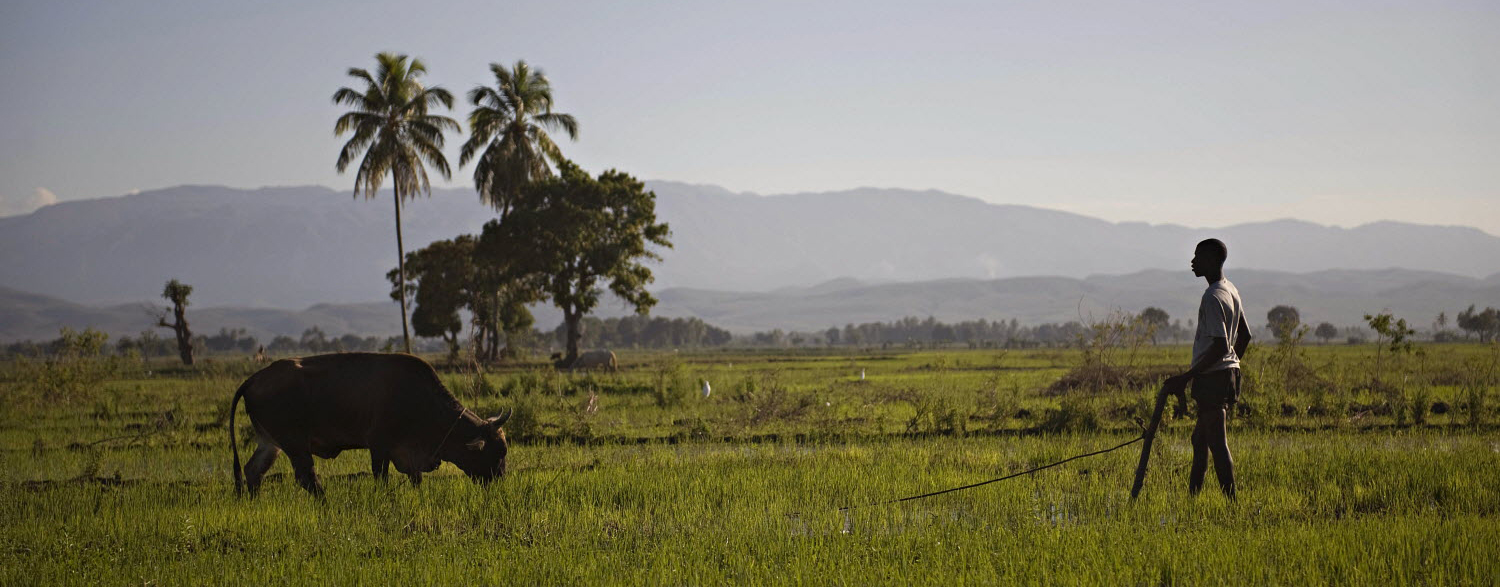FAO supports Members to build and implement effective collaborative One Health strategies and capacities, for improving the health of people, animals, plants and the environment. A One Health approach is used to design and implement programmes including enabling policies and regulatory frameworks, to ensure global health security through effective pandemic prevention, preparedness and response and management of health threats at the human-animal-environmental interface. One Health in agrifood systems transformation is a key Priority Programme Area, and part of FAO's Strategic Framework (2022-2031).
A hub of technical knowledge, FAO embraces One Health in protecting human, animal, plant and environment health; supporting management and conservation of natural resources; ensuring food security; facilitating access to safe and nutritious food; tackling AMR; advancing climate change adaptation and mitigation efforts; and promoting sustainable fisheries and agricultural production. To anticipate, prevent, detect and respond to plant, animal and zoonotic disease outbreaks and AMR, FAO encourages the collection, collation and sharing of epidemiological data and laboratory information across sectors and borders, which can result in more effective early warning, coordinated planning and response.
FAO collaborates with the United Nations Environment Programme (UNEP), the World Health Organization (WHO) and the World Organisation for Animal Health (WOAH) as the Quadripartite to address health threats at the human-animal-plant-environment interface and to promote health and sustainable development.
Effective One Health planning and implementation occur when government officials, researchers and workers across sectors at the local, national, regional and global levels join forces.
FAO One Health priorities include:
Improving early warning systems on animal and plant pests and diseases, including zoonotic diseases at the human-animal-plant-environment (HAPE) interface.
Strengthening biosecurity for pest and disease management in animals and plants, including zoonotic diseases, pests and invasive alien species management.
Facilitating effective emergency preparedness and response for anticipatory action on and response to food-chain emergencies, food safety issues and other health events at the human, animal, plant and environment interface.
Heightening AMR risk management at national, regional and global level by supporting One Health responses to AMR in the food and agriculture sector.
Enhancing One Health systems through strengthening contributions to One Health and biodiversity, and its ecosystem services, environmental health, soil/land, water, food safety and the sustainability of agrifood systems.
Contact
Coordination and implementation

One Health Technical Working Group
The One Health Technical Working Group coordinates cross-sectoral technical expertise, activities, and initiatives to foster One Health across FAO. The cross-cutting interdisciplinary group promotes collaboration between divisions and inter-agency coordination.

One Health High-Level Expert Panel
The One Health High-Level Expert Panel (OHHLEP) is a interdisciplinary initiative by FAO, UNEP, WHO and WOAH to improve our understanding of how diseases with the potential to trigger pandemics, emerge and spread.

Quadripartite collaboration
The Quadripartite agencies (FAO, WHO, UNEP and WOAH) develop and implement multi-sectoral and interdisciplinary approaches to complex health challenges at the animal-human-plant-environment interface.

